SEE IT BIG! MILDRED PIERCE (Todd Haynes, 2011)
Museum of the Moving Image
35th Ave. at 36th St., Astoria
Sunday, May 13, free with museum admission of $10, 4:00
718-777-6800
www.movingimage.us
www.hbo.com
 Clearly, the Museum of the Moving Image has a wicked sense of humor. Last Mother’s Day, the Astoria institution screened all five and a half hours of Todd Haynes’s splendid HBO version of Mildred Pierce, and they’re doing it again this Mother’s Day at 4:00, this time as the conclusion to the Fashion in Film Festival: If Looks Could Kill — and right after a 1:00 screening of the Joan Crawford original. This new Mildred Pierce is less a remake of Michael Curtiz’s 1945 noir, which earned Crawford a Best Actress Oscar for the title role, than a more faithful retelling of James M. Cain’s 1941 novel about a dedicated mother who cannot see through the deception of her awful, terrible, miserable, horrible, conniving daughter. Kate Winslet is stoic as Mildred, who, after her husband, Bert (Brian F. O’Byrne), leaves her for another woman, starts working as a waitress to help take care of her two children, especially her piano-prodigy daughter, Veda (first played by Morgan Turner, then Evan Rachel Wood when she’s older). Soon after Mildred’s pies become extremely popular, she opens up her own restaurant, with the help of Bert’s former business partner, Wally Burgan (James LeGros), who doesn’t mind getting a little something extra from Mildred. Mildred starts living a more exciting life, gallivanting around with would-be playboy Monty Beragon (Guy Pearce), but her happiness is continually thwarted by her undying, undeserving love for her daughter, who does not return the feeling but is more than content to take her mother’s money. Haynes and cowriter Jon Raymond focus on the characters instead of the camp, coming up with a compelling and involving depression-era tale that will break your heart over and over again. The Fashion in Film Festival, which examines clothing, crime, and violence in movies, also includes Abel Ferrara’s Ms. 45 on Friday and Alfred Hitchcock’s Marnie and John M. Stahl’s Leave Her to Heaven on Saturday.
Clearly, the Museum of the Moving Image has a wicked sense of humor. Last Mother’s Day, the Astoria institution screened all five and a half hours of Todd Haynes’s splendid HBO version of Mildred Pierce, and they’re doing it again this Mother’s Day at 4:00, this time as the conclusion to the Fashion in Film Festival: If Looks Could Kill — and right after a 1:00 screening of the Joan Crawford original. This new Mildred Pierce is less a remake of Michael Curtiz’s 1945 noir, which earned Crawford a Best Actress Oscar for the title role, than a more faithful retelling of James M. Cain’s 1941 novel about a dedicated mother who cannot see through the deception of her awful, terrible, miserable, horrible, conniving daughter. Kate Winslet is stoic as Mildred, who, after her husband, Bert (Brian F. O’Byrne), leaves her for another woman, starts working as a waitress to help take care of her two children, especially her piano-prodigy daughter, Veda (first played by Morgan Turner, then Evan Rachel Wood when she’s older). Soon after Mildred’s pies become extremely popular, she opens up her own restaurant, with the help of Bert’s former business partner, Wally Burgan (James LeGros), who doesn’t mind getting a little something extra from Mildred. Mildred starts living a more exciting life, gallivanting around with would-be playboy Monty Beragon (Guy Pearce), but her happiness is continually thwarted by her undying, undeserving love for her daughter, who does not return the feeling but is more than content to take her mother’s money. Haynes and cowriter Jon Raymond focus on the characters instead of the camp, coming up with a compelling and involving depression-era tale that will break your heart over and over again. The Fashion in Film Festival, which examines clothing, crime, and violence in movies, also includes Abel Ferrara’s Ms. 45 on Friday and Alfred Hitchcock’s Marnie and John M. Stahl’s Leave Her to Heaven on Saturday.
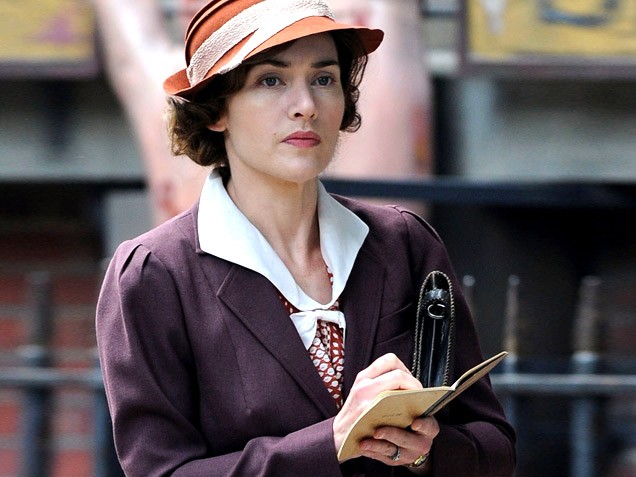
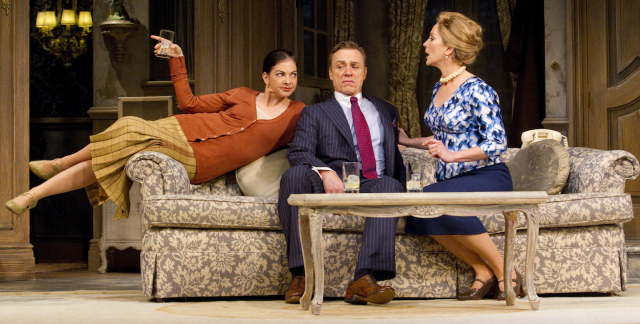
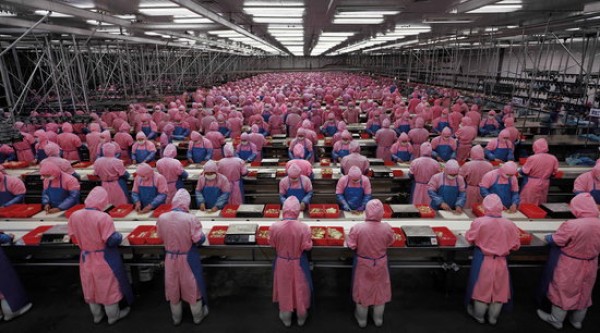
 Photographer Edward Burtynsky has been traveling the world with his large-format viewfinder camera, taking remarkable photographs of environmental landscapes undergoing industrial change. For Manufactured Landscapes, cinematographer Peter Mettler and director Jennifer Baichwal joined Burtynsky on his journey as he documented ships being broken down in Chittagong, Bangladesh; the controversial development of the Three Gorges Dam Project in China, which displaced more than a million people; the uniformity at a factory in Cankun that makes irons and the Deda Chicken Processing Plant in Dehui City; as well as various mines and quarries. Burtynsky’s photos, which were on view at the Brooklyn Museum in late 2005 and often can be seen in Chelsea galleries, are filled with gorgeous colors and a horrible sadness at the lack of humanity they portray. As in the exhibit, the audience is not hit over the head with facts and figures and environmental rhetoric; instead, the pictures pretty much speak for themselves, although Burtynsky does give some limited narration. Baichwal lets the camera linger on its subject, as in the remarkable opening shot, a long, slow pan across a seemingly endless factory. She is also able to get inside the photographs, making them appear to be three-dimensional as she slowly pulls away. Manufactured Landscapes is screening May 11 at the Maysles Cinema as part of the Beyond the Image series, which examines how photography is used in documentary film, and will be followed by a Skype Q&A with Baichwal, moderated by photographer Katie Murray. Curated by Clara Bastid, Maira Nolasco, and Zack Taylor, the series continues May 12 with Cheryl Dunn’s Everybody Street and Albert Maysles and Bradley Kaplan’s Close Up: Photographers at Work, followed by a reception and panel discussion with Maysles, Dunn, and photographers Ricky Powell and Clayton Patterson, moderated by Taylor, and May 13 with Christian Frei’s War Photographer, followed by a Q&A with Nolasco and journalist Jimmie Briggs.
Photographer Edward Burtynsky has been traveling the world with his large-format viewfinder camera, taking remarkable photographs of environmental landscapes undergoing industrial change. For Manufactured Landscapes, cinematographer Peter Mettler and director Jennifer Baichwal joined Burtynsky on his journey as he documented ships being broken down in Chittagong, Bangladesh; the controversial development of the Three Gorges Dam Project in China, which displaced more than a million people; the uniformity at a factory in Cankun that makes irons and the Deda Chicken Processing Plant in Dehui City; as well as various mines and quarries. Burtynsky’s photos, which were on view at the Brooklyn Museum in late 2005 and often can be seen in Chelsea galleries, are filled with gorgeous colors and a horrible sadness at the lack of humanity they portray. As in the exhibit, the audience is not hit over the head with facts and figures and environmental rhetoric; instead, the pictures pretty much speak for themselves, although Burtynsky does give some limited narration. Baichwal lets the camera linger on its subject, as in the remarkable opening shot, a long, slow pan across a seemingly endless factory. She is also able to get inside the photographs, making them appear to be three-dimensional as she slowly pulls away. Manufactured Landscapes is screening May 11 at the Maysles Cinema as part of the Beyond the Image series, which examines how photography is used in documentary film, and will be followed by a Skype Q&A with Baichwal, moderated by photographer Katie Murray. Curated by Clara Bastid, Maira Nolasco, and Zack Taylor, the series continues May 12 with Cheryl Dunn’s Everybody Street and Albert Maysles and Bradley Kaplan’s Close Up: Photographers at Work, followed by a reception and panel discussion with Maysles, Dunn, and photographers Ricky Powell and Clayton Patterson, moderated by Taylor, and May 13 with Christian Frei’s War Photographer, followed by a Q&A with Nolasco and journalist Jimmie Briggs.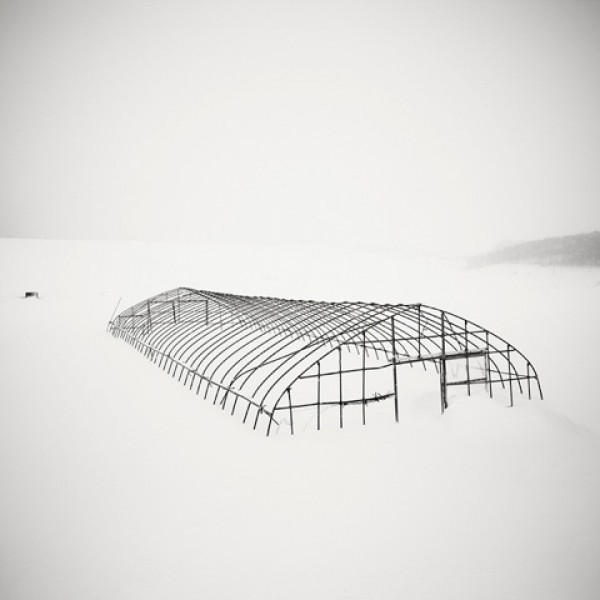
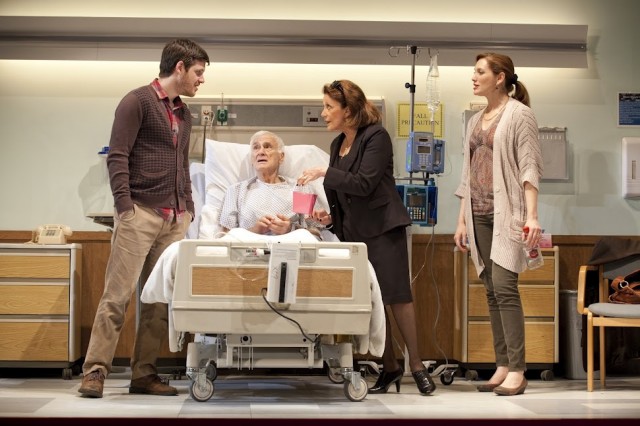
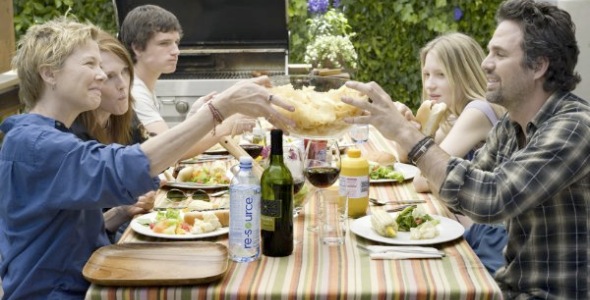

 British director Grant Gee, who has previously made such music documentaries as Meeting People Is Easy (about Radiohead), Demon Days: Live at the Manchester Opera House (with Gorillaz), and Joy Division, takes off on a more literary journey with Patience (After Sebald). Commissioned to examine a written work of fiction or nonfiction, Gee chose to delve into W. G. Maximilian Sebald’s highly influential 1995 book, The Rings of Saturn, about a character named W. G. Sebald who goes on a walk through Suffolk in East Anglia, veering off in his mind in all directions, waxing poetic on history, geography, life, death, literature, and other subjects. “In August 1992,” Sebald begins in the existential travelogue, “when the dog days were drawing to an end, I set off to walk the county of Suffolk, in the hope of dispelling the emptiness that takes hold of me whenever I have completed a long stint of work.” In the film, Gee includes shots of his own feet as he follows Sebald’s path, along with archival footage that relates to the book itself as such writers, artists, and cultural critics as Rick Moody, Tacita Dean, Ian Sinclair, Marina Warner, Adam Phillips, Andrew Motion, and Robert McFarlane talk about Sebald, who died in 2001 at the age of fifty-seven, and the importance of the hard-to-define Rings. To match the older footage, Gee shot much of the new material in a hazy, grainy black and white, with the talking heads occasionally appearing on camera almost in the background. The film includes fascinating snippets of a rare radio interview with Sebald in addition to a narrator reading sections from the book, both of which end up being far more interesting than what many of the other contributors have to say. Reminiscent of Patrick Keiller’s Robinson in Ruins, Robinson in Space, and London, Gee’s Patience fetishizes its subject but lacks the visual and aural poetry of those works, with the walk becoming somewhat tiresome until its offbeat surprise ending. As on most trips, there are beautiful moments, engaging digressions, and gorgeous landscapes to linger over, but they grow fewer and farther between as the story unfolds. Although it’s not necessary to have read the book in order to follow Gee’s wanderings, it would probably help. Patience (After Sebald) opens May 9 at Film Forum, with the 8:20 show on opening night introduced by Sebald friend Moody, and the 8:20 show on May 11 will be introduced by Lynne Sharon Schwartz, editor of The Emergence of Memory: Conversations with W.G. Sebald.
British director Grant Gee, who has previously made such music documentaries as Meeting People Is Easy (about Radiohead), Demon Days: Live at the Manchester Opera House (with Gorillaz), and Joy Division, takes off on a more literary journey with Patience (After Sebald). Commissioned to examine a written work of fiction or nonfiction, Gee chose to delve into W. G. Maximilian Sebald’s highly influential 1995 book, The Rings of Saturn, about a character named W. G. Sebald who goes on a walk through Suffolk in East Anglia, veering off in his mind in all directions, waxing poetic on history, geography, life, death, literature, and other subjects. “In August 1992,” Sebald begins in the existential travelogue, “when the dog days were drawing to an end, I set off to walk the county of Suffolk, in the hope of dispelling the emptiness that takes hold of me whenever I have completed a long stint of work.” In the film, Gee includes shots of his own feet as he follows Sebald’s path, along with archival footage that relates to the book itself as such writers, artists, and cultural critics as Rick Moody, Tacita Dean, Ian Sinclair, Marina Warner, Adam Phillips, Andrew Motion, and Robert McFarlane talk about Sebald, who died in 2001 at the age of fifty-seven, and the importance of the hard-to-define Rings. To match the older footage, Gee shot much of the new material in a hazy, grainy black and white, with the talking heads occasionally appearing on camera almost in the background. The film includes fascinating snippets of a rare radio interview with Sebald in addition to a narrator reading sections from the book, both of which end up being far more interesting than what many of the other contributors have to say. Reminiscent of Patrick Keiller’s Robinson in Ruins, Robinson in Space, and London, Gee’s Patience fetishizes its subject but lacks the visual and aural poetry of those works, with the walk becoming somewhat tiresome until its offbeat surprise ending. As on most trips, there are beautiful moments, engaging digressions, and gorgeous landscapes to linger over, but they grow fewer and farther between as the story unfolds. Although it’s not necessary to have read the book in order to follow Gee’s wanderings, it would probably help. Patience (After Sebald) opens May 9 at Film Forum, with the 8:20 show on opening night introduced by Sebald friend Moody, and the 8:20 show on May 11 will be introduced by Lynne Sharon Schwartz, editor of The Emergence of Memory: Conversations with W.G. Sebald.